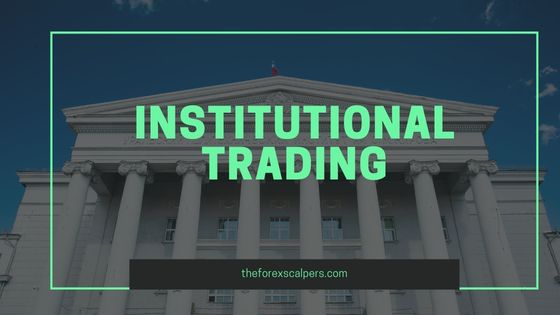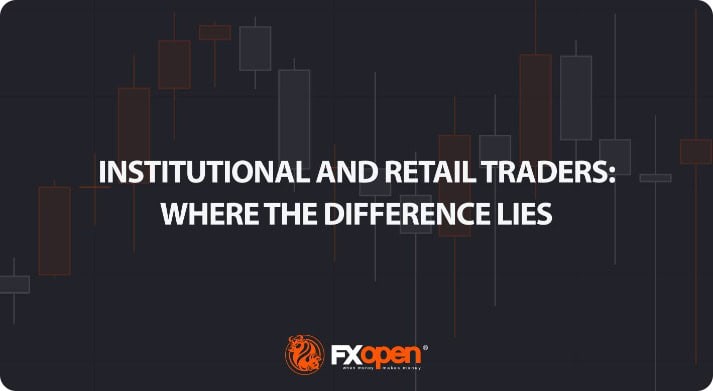So, whether or not you are a retail trader or an institutional dealer, it’s important to understand the dynamics of institutional buying and selling and the method it impacts the financial market. Nonetheless, retail traders might face challenges when competing with institutional merchants as a result of their limited assets and access to information. So, whether or not you are a retail trader or an institutional trader, it is important to remain Proof of identity (blockchain consensus) up-to-date on trade trends and buying and selling methods to guarantee that you are making probably the most of your trades. Not Like institutional traders, retail traders often trade blocks of foreign money by way of to the exchanges. Institutional buying and selling is practised by institutions such as hedge funds, pension funds, and mutual funds, who buy and sell massive volumes of securities.
These high-octane methods, when flawlessly built-in into a broader investment framework, can substantially increase the aggressive bar for institutional merchants working in the fast-paced global markets. The information from EPAT programme can be useful in changing into an institutional trader. EPAT offers an unlimited data of the contemporary ideas of algorithmic buying and selling and quantitative calculations for increasing the convenience and favourable returns while trading in financial markets. Hedge funds are an alternate investment car sometimes available only to accredited investors or institutional traders.

As an investor, you have the flexibility to invest in a wide range of asset courses, including financial instruments corresponding to securities and international exchange. Investment banks help with monetary transactions like IPOs, mergers, and reorganizations. Examples embrace JP Morgan Chase and Morgan Stanley, key gamers within the institutional trading sector. HowToTrade.com helps merchants of all levels learn how to trade the monetary markets. Institutional traders often monitor commodities and other property experiencing increased demand due to varied factors, such as provide shortages or geopolitical events. For instance, in 2022, Aluminum saw a surge in demand following a power crunch in China, presenting a profitable alternative for buyers.

Tip 1: Seek Alternatives In Ipos And Penny Stocks
This is particularly necessary given the massive quantities of funds from a number of completely different traders that institutional traders typically manage. Institutional merchants are additionally subject to stricter regulatory frameworks in comparison with retail traders due to their potential impact on market stability. In distinction, retail traders usually trade smaller volumes and have restricted assets for analysis and analysis. HFT, however, includes utilizing advanced expertise to investigate market knowledge in real-time and execute trades within milliseconds. Institutional trading is a vital side of the financial market, the place large establishments similar to banks, hedge funds, and pension funds trade securities on behalf of their purchasers. Essentially, this refers again to the buying and selling of financial belongings https://www.xcritical.com/ on behalf of large organizations such as banks, pension funds, or insurance coverage corporations.
These merchants make use of subtle methods and tools to handle their giant portfolios and generate superior returns. The strategies utilized by institutional traders differ considerably from retail merchants, as they usually have entry to more resources, including proprietary technology, data, and experience. Institutional buying and selling refers again to the process by which massive entities, similar to hedge funds, pension funds, and mutual funds, purchase and promote giant quantities of securities.

These institutions often interact in block buying and selling, the place large quantities of securities are purchased or bought exterior the open market to minimize the impression on the asset’s worth. Such trades often occur through personal negotiation or through a dedicated block trading desk. Yes, we work onerous daily to show day buying and selling, swing buying and selling, options futures, scalping, and all that enjoyable buying and selling stuff. But we also like to teach you what’s beneath the Basis of the stock market. This is why institutional trading can have a serious influence on share prices and market volatility, as they typically have interaction in large-scale transactions and require the finest possible information. Institutional merchants have the benefit of a bigger capital base and may invest in a wider vary of securities, together with those with higher minimum funding requirements.
We’ll break down advanced ideas into easy-to-understand language and supply sensible tips that anyone can comply with. Get able to obtain cutting-edge analysis, top-notch schooling, and actionable tips straight to your inbox. All the ideas and rules are defined with the help of examples for higher clarity and understanding of the financial world. This book highlights a few of the necessary concepts which are helpful for the most recent financial orders and plans. Keeping Graham’s unique text in unique kind, the e-book focuses on major ideas that may be utilized in day-to-day life.
Forex Market: Foreign Money Exchange Rate Influence
For example, a dealer might purchase a security in a single market where it’s undervalued and concurrently sell it in another market the place it’s overvalued. Common types of arbitrage methods embrace merger arbitrage, statistical arbitrage, and foreign money arbitrage. Chat With Traders is your key to the minds of financial market trading’s elite performers. Start listening to find out how a diverse mix of traders went from zero to hero, how they efficiently commerce markets at present and get their finest suggestions and pointers for worthwhile efficiency, plus rather more. For changing into an institutional dealer, you have to begin as a retail dealer so that you know the intricacies of the monetary market.
- This process entails continuous assessment and realignment, making certain every portfolio is equipped to weather market fluctuations and aligned with the investor’s danger tolerance and time horizon.
- Both teams may use similar trading tools and strategies, for example, technical evaluation, elementary evaluation, and algorithmic buying and selling.
- Instead, they might be parsed over many brokers, which might make it troublesome to trace the circulate of trades.
- Establishments possess an arsenal of sources to achieve the coveted data edge in today’s information-rich surroundings.
Only threat capital must be used for buying and selling and only these with adequate risk capital ought to contemplate buying and selling. Testimonials showing on this website will not be consultant of different purchasers or prospects and isn’t a guarantee of future performance or success. By maintaining up-to-date with current stories, skilled suggestions, and evaluation of this topic, you may make knowledgeable investment decisions that will help you obtain your financial goals. Their actions can even impact market liquidity, as they could choose to increase or decrease liquidity depending on their funding technique. This entails utilizing pc programs to investigate market data and execute trades mechanically. Institutional buying and selling is an essential facet of the monetary market that gives liquidity and facilitates price discovery.
Mastering the artwork of prediction in the face of market volatility is an essential talent for institutional traders. By carefully analyzing economic indicators and geopolitical events, these merchants can forecast market movements and regulate their strategies accordingly. Harnessing such anticipation strategies mitigates dangers and probably turns market turbulence into profitable alternatives. Retail traders typically put money into shares, bonds, choices, and futures, they usually have minimal to no access to IPOs. Most trades are made in spherical heaps (100 shares), but retail merchants can commerce any quantity of shares at a time.
Their methods delineate a vista where the alignment of monetary heft and infrastructural intellect forecast an unprecedented efficiency in shaping market trajectories. It is crucial, subsequently, for traders of all scales to comprehend the burgeoning dynamics that institutional behaviors engender in navigating the continually reworking market arena. Due to their massive capital, establishments exert a big affect on the markets. They can diversify their investments and entry better costs, giving them an advantage over retail traders.
In the world of finance, buying and selling is a elementary exercise involving the buying and selling of monetary assets. This article focuses on institutional trading, explaining its definition, historical past, types, methods and extra. In a examine published in the Journal of Financial Economics, Diane Del Guercio examined how institutional investors affect stock market efficiency. She found that while institutional buyers contribute to market liquidity, their massive trades can typically distort inventory prices, particularly when they move out and in of positions rapidly.

Ho sempre sentito una forte connessione con il Divino fin dalla mia nascita. Come autrice e mentore, la mia missione è aiutare gli altri a trovare l'amore, la felicità e la forza interiore nei momenti più bui.
